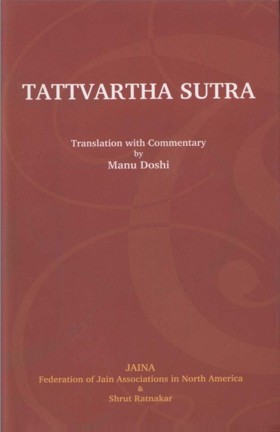09.19 Anashanāvamaudaryavrttiparisankhyānrasparityāgviviktashayyāsankāyakiesha Bāhyam Tapah
Audio: Sanskrit: अनशनावमौदर्यवृत्तिपरिसंख्यानरस परित्यागविविक्तशय्यासन कायक्लेशा बाह्यं तपः।
Hindi: अनशन, अवमौदर्य, वृत्तिसंख्यापन, रसपरित्याग, विविक्त शय्यासन, और कायक्लेश ये बाह्य तप है।
09.19
English: Fasting, eating less than required, curtailing the varieties, control over tastes, lonely habitation and facing the hardships constitute the external austerities.
Austerity is the next important factor in preventing Karma. It was earlier pointed out that Samvar is analogous to closing the doors and windows in order to prevent dirt coming in. Thereafter one has to remove the dirt accumulated inside. Similarly after resorting to prevention of new Karma, one needs to eradicate the existing bondage of Karma. That is known as Nirjarā. Austerities are not only helpful in preventing the incoming of Karma, but also in eradicating the existing bondage.
Tap denotes undertaking austerities with a view to overcoming desires, longings etc. That can be of various types. All of them are broadly classified in two categories of external and internal austerities. Those, which mainly pertain to the physical level and which are more or less visible, are external austerities. Those, which relate to the mental level and which are not very visible, are internal ones These two categories are divided into six types each. As such, there are twelve types of austerities in all. The sutra 19 specifies the following six external austerities.
The main purpose of observing external austerities is to face and get used to the hardships that may arise from time to time. That would enable the spiritual aspirants to observe the peace and tranquility of mind in all the circumstances. That would also enable them to observe the internal austerities.
 Acharya Umaswati
Acharya Umaswati
